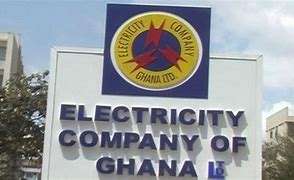The threat of a national blackout, commonly referred to as “dumsor” is looming large over Ghana as the Ghana Gas Senior Staff Association (GGSSA) has voiced its apprehensions regarding the non-payment by the Electricity Company of Ghana (ECG) to major stakeholders in the energy sector.
The GGSSA emphasized that the repercussions of this financial impasse extend far beyond the immediate stakeholders, potentially disrupting the delicate balance within the energy sector and posing a significant threat to the nation’s economic growth.
In a statement issued on Wednesday, December 20, the GGSSA, led by its Chairman Richmond Kabiru Alamu, highlighted the situation’s urgency and called on the ECG to promptly settle its financial obligations, particularly to Ghana Gas. The association underscored the critical role of the energy sector in Ghana’s economic growth and expressed deep concern over the potential disruptions caused by the non-payment.
“The energy sector, a vital component of Ghana’s economic growth, is now at risk of disruption, the statement declared. The inability to settle financial obligations not only hampers Ghana Gas’s ability to maintain infrastructure and operations but also reverberates through the entire energy supply chain, affecting stakeholders and service providers alike.”
GGSSA
The GGSSA’s concerns came amid international directives advocating for timely payments to state-owned enterprises. The International Monetary Fund (IMF) has consistently emphasized this as a best practice, urging adherence to avoid destabilizing critical sectors. The GGSSA pointed out that even President Nana Addo Dankwa Akufo-Addo and Vice President Dr. Mahamudu Bawumia have echoed similar sentiments.
Despite these called and directives, the GGSSA notes that ECG’s non-compliance persists, leaving entities like Ghana Gas in financial limbo. This financial strain not only impedes infrastructure maintenance and operational efficiency for Ghana Gas but also disrupts the interconnected web of stakeholders within the energy supply chain.

“Adherence to IMF conditionality and presidential directives is crucial for maintaining financial stability and ensuring the seamless functioning of critical entities within the energy sector.”
GGSSA
Furthermore, the GGSSA called upon the government and relevant authorities to urgently address the non-payment issue to mitigate potential economic fallout and safeguard Ghana’s reputation as a responsible and stable investment destination.
Dumsor Should Not Be Welcome
The looming threat of “dumsor” has historical resonance in Ghana, recalling a period of persistent power outages that significantly impacted daily life, businesses, and the economy. The GGSSA’s concerns highlight the need for immediate action to avert a recurrence of this challenging period and maintain the country’s energy stability, which is essential for sustained economic growth and development.
As the government and stakeholders grapple with the urgency of the situation, the eyes of the nation are on the resolution of these financial challenges to ensure an uninterrupted and reliable energy supply.
To address the pressing issue of non-payments by the Electricity Company of Ghana (ECG) and avert the looming threat of “dumsor,” collaborative and decisive action is imperative. Firstly, immediate attention must be given to settling outstanding financial obligations to major stakeholders, particularly Ghana Gas. The ECG, in compliance with international best practices and presidential directives, should prioritize timely payments to ensure the financial stability of critical entities within the energy sector.
Furthermore, the government and relevant authorities should engage in transparent and open dialogue with both ECG and Ghana Gas to identify the root causes of the payment delays. A collaborative effort to streamline bureaucratic processes and enhance financial management practices is essential.
Additionally, exploring sustainable funding mechanisms and investment strategies for the energy sector could provide long-term solutions. This may involve leveraging public-private partnerships, seeking international support, or introducing innovative financing models to ensure the sector’s resilience.
Ultimately, a multi-stakeholder approach, involving government bodies, regulatory agencies, and industry players, is crucial to instill confidence, restore financial stability, and safeguard the nation against the adverse impacts of potential power disruptions.
READ ALSO: Ghana’s Bittersweet Cocoa Industry Struggles Amidst Economic Challenges




















